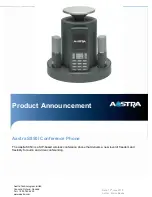
(QJOLVK
♦
Refuelling: switch the telephone
off when refuelling; the same
precaution should be taken in
the vicinity of chemical plants or
where explosives are used.
♦
Keep the telephone out of reach
of children.
♦
When driving only use the tele-
phone with the hands-free devi-
ce; never stop on the hard shoul-
der on motorways or dual carria-
ge ways to make or receive calls
unless in the event of an emer-
gency.
♦
Switch off the telephone when on
board an aeroplane (even when
stationary on the runway). Use of
mobile telephones constitutes a
hazard to flight systems and use
is illegal. In certain countries fai-
lure to observe this provision is
considered a criminal offence
and may lead to suspension or
prohibition of mobile telephone
services, legal action or both.
♦
Take great care when using the
telephone in the vicinity of devi-
ces such as pacemakers, hea-
ring aids and electro-medical
equipment.
♦
Use exclusively original accesso-
ries and spare parts; use of other
parts will render the guarantee
null and void.
♦
Never attempt to disassemble
the telephone: no internal parts
can be repaired by the user.
♦
Ensure that the telephone does
not come into contact with any
liquid: if this occurs, disconnect
from the power supply if charging
and contact the supplier.
♦
Avoid use of the telephone outsi-
de the specified temperature
range:-10ºC to + 55ºC. Never
leave the telephone exposed to
direct sunlight or in environments
with high humidity levels or expo-
sed to dust.
♦
Clean the telephone using a
damp cloth and a weak deter-
gent/water solution.
♦
There is no evidence to date of
the harm caused by electro-
magnetic waves generated by
cellular telephones. In any event
exposure to electromagnetic wa-
ves can be reduced drastically
using a car kit device.
3. IMPORTANT WARNINGS
















































